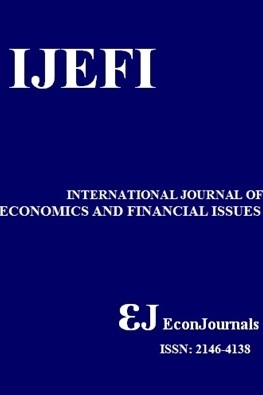Board Characteristics and Earnings Per Share of Malaysian Islamic Banks
Board Characteristics and Earnings Per Share of Malaysian Islamic Banks
board characteristics, Islamic banks, Malaysia,
- Başlangıç: 2011
- Yayıncı: İlhan ÖZTÜRK
Proactive Monitoring and Compliance with International Financial Reporting Standard in Nigeria
Muhammad Mustapha BAGUDO, Kamarul Bahrain Bin Abdul MANAF, Rokiah Bt. ISHAK
Hossein NEZAKATİ, Meghdad Abbasian FEREİDOUNİ, Jamil BOJEİ, Ho Jo ANN
Work-life Balance: The effect on Absenteeism among Employees in a Malaysian Utility Company
Idaya Husna Mohd, Maimunah Mohd Shah, Nur Aizureen Anwar, Nadia Mahzumi
The Profile of Pekalongan as a Center of Economic Growth at Tangkallangka Strategic Areas
Karsinah KARSİNAH, Phany Ineke Putri, K. Nurjannah Rahayu, Agata Febrina Panjiputri
Family Friendly Work Practices in the U.S. Revisited
Balasundram MANİAM, Hadley LEAVELL, Stephanie PUSTEJOVSKY
Faridah PARDİ, Abdol Samad NAWİ
The Relations of Defense Budget with Investment: Evidence from Indonesia
Posma Sariguna Johnson Kennedy
Corporate Governance Factors Affecting Donation: Evidence from Charitable Organizations in Malaysia
Suhaily Hasnan, Maslinawati Mohamad, Zairul Nurshazana Zainuddin, Zubaidah Zainal Abidin
An Evaluation of Government Role in Green Supply Chain Management through Theories
Hossein NEZAKATİ, Meghdad Abbasian FEREİDOUNİ, Azmawani Abd RAHMAN
Cash Holding, State Ownership and Firm Value: The Case of Vietnam
